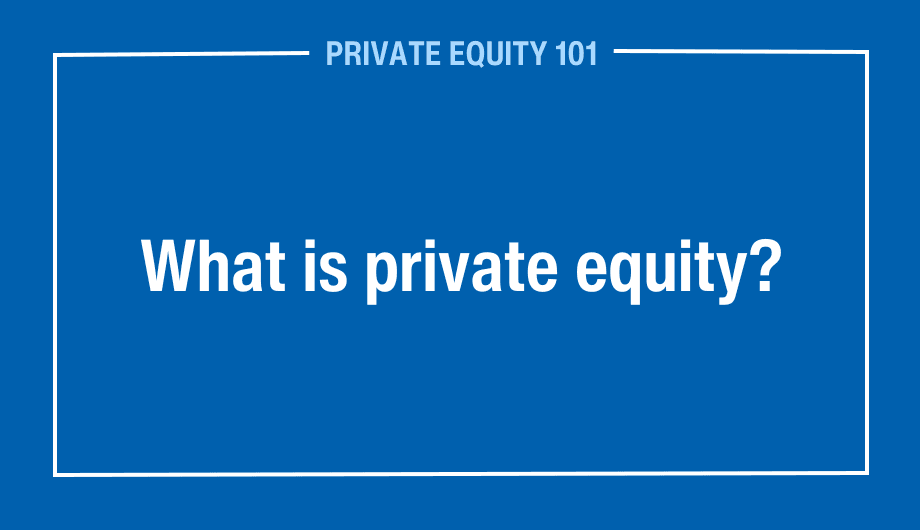Private Equity 101: Understanding the Basics

Private equity is a complex and often misunderstood investment strategy. In this article, we will provide an introduction to private equity and explain the basics of this investment strategy.
What is Private Equity?
Private equity is a form of investment that involves the purchase of a company or part of a company by a private investor or group of investors. These investors typically have a long-term investment horizon and are looking for high returns on their investment.
Private equity investors typically have a deep understanding of the industry in which they are investing and are looking for companies that have the potential for growth and profitability. They may also be looking for companies that are undervalued or have underperforming assets that can be turned around.
Types of Private Equity Investments
There are several types of private equity investments, including:
- Buyout: This type of investment involves the purchase of a company or part of a company by a private investor or group of investors. The investor typically has the goal of taking the company private and then selling it at a profit.
- Venture capital: This type of investment is typically made in early-stage companies that are looking for funding to help them grow and develop their business. Venture capital investors typically have a longer-term investment horizon and are looking for high returns on their investment.
- Mezzanine financing: This type of investment is typically made in companies that are already profitable but may be looking for additional capital to help them grow or expand. Mezzanine investors typically have a shorter-term investment horizon and are looking for a return on their investment.
- Leveraged buyout: This type of investment involves the purchase of a company or part of a company by a private investor or group of investors using a combination of debt and equity. The investor typically has the goal of taking the company private and then selling it at a profit.
Private Equity Investment Process
The private equity investment process can be complex and time-consuming. Here are the key steps involved in the process:
- Identify potential investment opportunities: Private equity investors typically look for companies that have the potential for growth and profitability. They may also be looking for companies that are undervalued or have underperforming assets that can be turned around.
- Conduct due diligence: Private equity investors will conduct extensive due diligence on the company they are considering investing in. This may include reviewing financial statements, talking to management and employees, and conducting market research.
- Negotiate terms: Once the investor has identified a potential investment opportunity, they will negotiate the terms of the investment with the company. This may include the purchase price, the amount of equity or debt that will be provided, and any other terms of the investment.
- Close the deal: Once the terms of the investment have been negotiated, the investor will close the deal by signing the necessary documents and transferring the funds to the company.
- Monitor and manage the investment: Once the investment has been made, the investor will monitor and manage the investment to ensure that it is meeting their investment objectives. This may include providing guidance and support to management, making strategic decisions, and selling the company at a profit.
Private Equity Investment Risks
Private equity investments can be risky and may not always result in a profit. Here are some of the key risks involved in private equity investments:
- Market risk: Private equity investments are subject to market risk, which means that the value of the investment can be affected by changes in the overall market.
- Company risk: Private equity investments are also subject to company risk, which means that the value of the investment can be affected by changes in the performance of the company.
- Management risk: Private equity investments are also subject to management risk, which means that the value of the investment can be affected by the performance of the management team.
- Exit risk: Private equity investments are also subject to exit risk, which means that the value of the investment can be affected by the ability of the investor to sell the company at a profit.
Conclusion
Private equity is a complex and often misunderstood investment strategy. In this article, we have provided an introduction to private equity and explained the basics of this investment strategy. We have also discussed the different types of private equity investments, the investment process, and the risks involved in private equity investments.
If you are interested in learning more about private equity or are considering making a private equity investment, it is important to do your research and work with experienced professionals who can provide guidance and support.
private equity investment processprivate equity investment risksprivate equity investment typesprivate equity investment strategiesprivate equity investment opportunitiesprivate equity investment returnsprivate equity investment managementprivate equity investment exit strategyprivate equity investment tax implicationsprivate equity investment regulationsprivate equity investment due diligence





